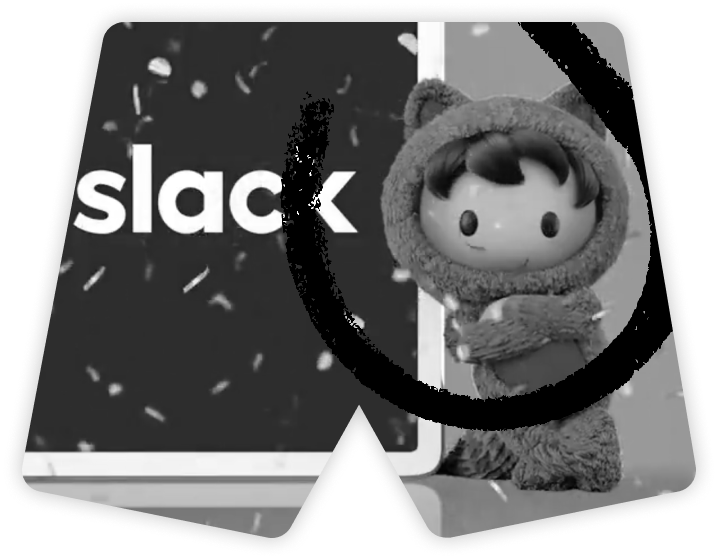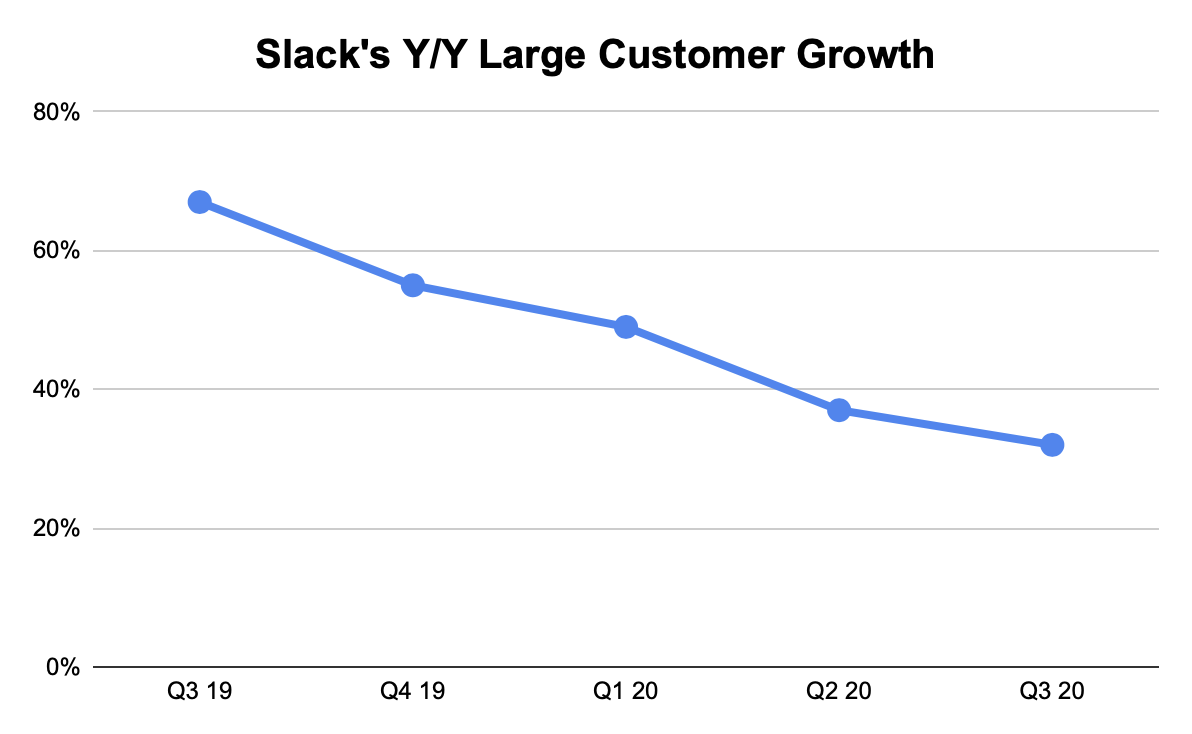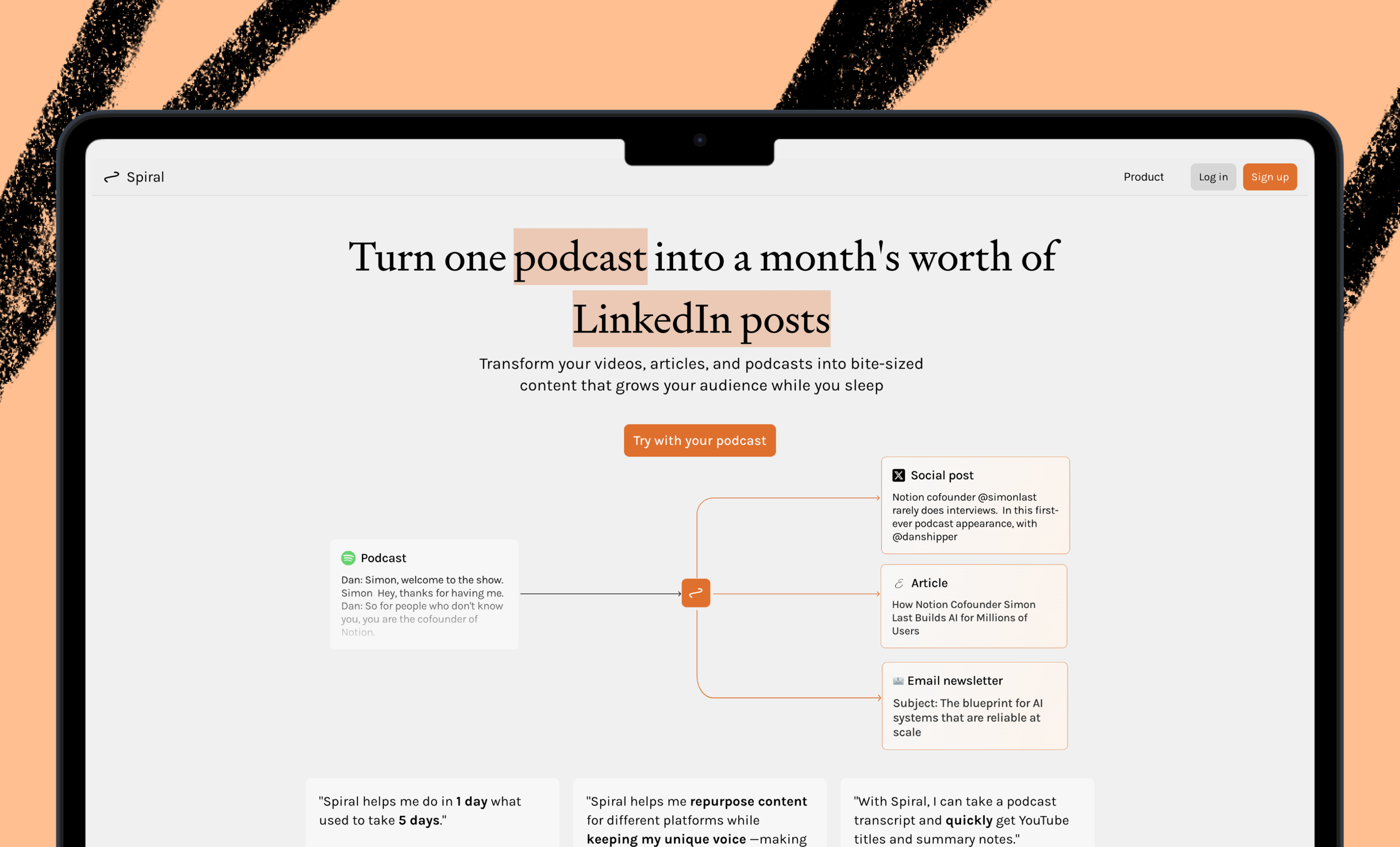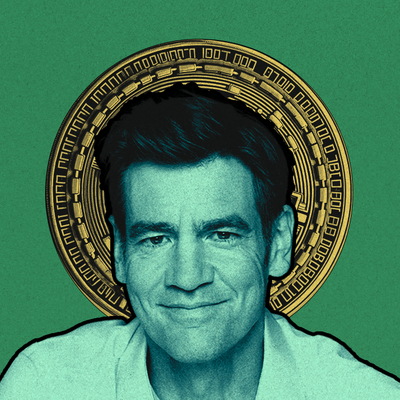
Hello and welcome to Three Shorts! Every Wednesday morning, I send you an email where we unpack the strategy behind the news in as few bullet points as possible.
This week we’ve got:
- Why Salesforce bought Slack
- Why Apple hired Josh Elman to improve app discovery
- Why Axel Springer, the owner of Business Insider, wants to buy more media companies
Enjoy!
(And don’t forget to click the feedback thingy at the bottom 🙏)
 Salesforce’s acquisition of Slack — huge! 😮
Salesforce’s acquisition of Slack — huge! 😮
What happened?
- Salesforce is buying Slack for $27.7 billion dollars.
- That’s a 64% premium over their $16.8b market cap from 11/24, the day before the rumors of the acquisition leaked.
Why? What’s the strategy?
- For big news like this, I wanted to make sure I got the story right. So yesterday I talked to Ed Sim, founder of Boldstart Ventures!
- Ed has deep experience in enterprise SaaS, and invested early in hit products such as Front, Superhuman, Kustomer (which just got acquired by Facebook for $1 billion), and many more.
- My theory going into the call with Ed was that Slack was willing to sell because Microsoft Teams had damaged their business:
- This chart, which I made from data in their Q3 earnings deck, says it all. Slack’s growth with large customers is slowing dramatically:
- Another scary metric: Teams just announced 115m daily active users, while Slack hasn’t disclosed DAU since October last year, when they had only 12m DAU.
- Why is this happening? Microsoft offers a bundle with Teams (their version of Slack) for no additional charge to companies who already pay for Microsoft 365, which includes Word, Outlook, etc.
- This changes the decision calculus dramatically for tons of businesses, especially large ones. Given that Teams is pretty equivalent to Slack, why spend hundreds of thousands of dollars a year on something you can already get for free?
- Ed thought this was probably right, but also pointed me towards the huge upside that’s in it for Salesforce.
- “It’s a brilliant buy,” he said. “For a couple reasons.”
- “First, Slack is the digital nervous system for businesses. That’s a powerful position to be in, and Salesforce is currently dependent on integrations with these hubs. Now they own one.”
- “Second, Slack benefits from bottoms-up, product-led adoption. This is a valuable contrast to Salesforce’s usual focus on big enterprise clients that require a lengthy sales process.”
- I asked Ed: given how powerful the bundling strategy has been for Microsoft Teams, does he think Salesforce will create a bundle with Slack?
- “I’d say I can see that definitely happening over time along with tighter integrations with Salesforce applications from the core CRM to Tableau and Quip.”
- Here we’re seeing a sort of enterprise version of the ecosystem wars that Apple and Google are fighting in consumer. Each has their strengths, but there are many areas of competitive overlap.
Will it work?
Hello and welcome to Three Shorts! Every Wednesday morning, I send you an email where we unpack the strategy behind the news in as few bullet points as possible.
This week we’ve got:
- Why Salesforce bought Slack
- Why Apple hired Josh Elman to improve app discovery
- Why Axel Springer, the owner of Business Insider, wants to buy more media companies
Enjoy!
(And don’t forget to click the feedback thingy at the bottom 🙏)
 Salesforce’s acquisition of Slack — huge! 😮
Salesforce’s acquisition of Slack — huge! 😮
What happened?
- Salesforce is buying Slack for $27.7 billion dollars.
- That’s a 64% premium over their $16.8b market cap from 11/24, the day before the rumors of the acquisition leaked.
Why? What’s the strategy?
- For big news like this, I wanted to make sure I got the story right. So yesterday I talked to Ed Sim, founder of Boldstart Ventures!
- Ed has deep experience in enterprise SaaS, and invested early in hit products such as Front, Superhuman, Kustomer (which just got acquired by Facebook for $1 billion), and many more.
- My theory going into the call with Ed was that Slack was willing to sell because Microsoft Teams had damaged their business:
- This chart, which I made from data in their Q3 earnings deck, says it all. Slack’s growth with large customers is slowing dramatically:
- Another scary metric: Teams just announced 115m daily active users, while Slack hasn’t disclosed DAU since October last year, when they had only 12m DAU.
- Why is this happening? Microsoft offers a bundle with Teams (their version of Slack) for no additional charge to companies who already pay for Microsoft 365, which includes Word, Outlook, etc.
- This changes the decision calculus dramatically for tons of businesses, especially large ones. Given that Teams is pretty equivalent to Slack, why spend hundreds of thousands of dollars a year on something you can already get for free?
- Ed thought this was probably right, but also pointed me towards the huge upside that’s in it for Salesforce.
- “It’s a brilliant buy,” he said. “For a couple reasons.”
- “First, Slack is the digital nervous system for businesses. That’s a powerful position to be in, and Salesforce is currently dependent on integrations with these hubs. Now they own one.”
- “Second, Slack benefits from bottoms-up, product-led adoption. This is a valuable contrast to Salesforce’s usual focus on big enterprise clients that require a lengthy sales process.”
- I asked Ed: given how powerful the bundling strategy has been for Microsoft Teams, does he think Salesforce will create a bundle with Slack?
- “I’d say I can see that definitely happening over time along with tighter integrations with Salesforce applications from the core CRM to Tableau and Quip.”
- Here we’re seeing a sort of enterprise version of the ecosystem wars that Apple and Google are fighting in consumer. Each has their strengths, but there are many areas of competitive overlap.
Will it work?
- Ed is bullish:
- “It reminds me of Mulesoft — a fabulous acquisition by Salesforce in 2018.”
- Much like Slack is a central nervous system for employee-facing information flows, Mulesoft ties together back-end data from various disparate systems.
- At the time, most analysts thought Salesforce had overpaid for Mulesoft. But since then it’s been a huge hit — proving Salesforce’s ability to cross-sell high quality products they acquire to their large, existing customer base.
- I’m inclined to agree. I think Salesforce can get a significant portion of their customers using Slack, and that will be a transformative thing for both companies.
What you can learn:
- Bundling is magic.
- Salesforce and Microsoft are the main two natural acquirers for any enterprise SaaS product.
- If you control the right layer in the value chain — like a central hub for employee communication — the strategic value of your position might be worth more to acquirers than as a stand-alone money-printing business.
 Apple’s App Store hire — promising 🤞
Apple’s App Store hire — promising 🤞
What happened?
- Josh Elman, a heavy-hitter in the product world, announced on Monday that he would be joining Apple to work on App Store discovery.
- This move comes shortly after Apple announced, perhaps not unrelatedly, that they would be cutting fees for small developers.
Why? What’s the strategy?
- To me the move to hire someone as senior as Elman suggests that Apple is getting serious about improving App discovery.
- This might be a part of a broader move to make developers happy, in response to the wake-up call that 2020 represented, with the HEY dust-up, and possible antitrust action lingering on the horizon.
- As I said last week in Three Shorts, “Apple correctly senses resentment from their developer community, and they understand that small developers collectively represent a huge part of what makes Apple products great. They don’t want to lose them.”
- One of the best ways to make developers happy is to funnel more users to their apps.
- Right now, the only reason developers use the App Store is because Apple forces them to. Almost all discovery happens elsewhere: word of mouth, paid ads, etc.
- Developers would feel less bad about Apple’s fees if they felt like they were getting a lot of new business simply by existing on the App Store.
- It’s like how YouTubers are okay with less than half of the ad revenue they generate, but platforms like Substack feels expensive at 10%, and payment processors feel expensive above 3%.
Will it work?
- It’s incredibly hard to predict without knowing what Josh and his team will build.
- The big problem is that people don’t wake up thinking “what app should I download today?” So you have to make discovery happen through some other way.
- Previously, Apple tried to solve app discovery by launching the “Today” tab in 2017. It’s kind of like a blog in the app store highlighting various apps. My sense is that this did not transform the App Store’s economics, but may have been an incremental win.
- That being said, I have a few ideas 😁
- What if you got a push notif every time an app is trending with your friends?
- What if when you searched “photo editing” Apple had a Wirecutter-esque review pointing you to the best app for your needs?
- What if you could download an app to your phone by clicking a button on a website?
- DM me, Josh!!
What you can learn:
- As a wise person once said, “Whoever generates the demand gets to capture the value.”
 Axel Springer’s acquisition appetite — spicy 🌶
Axel Springer’s acquisition appetite — spicy 🌶
What happened?
- Lars Kahl, an executive from Axel Springer, the German publishing conglomerate that owns Business Insider, signalled in an interview this week that they’re interested in acquiring more US-based media companies.
- This comes just a month after Insider spent $75m to acquire Morning Brew. Insider has also reportedly ramped up hiring in an effort to accelerate growth of their subscription business.
- Axel Springer can afford this strategy because they were recently taken privateby KKR, a huge hedge fund with deep pockets.
- Generally speaking, digital media in the US is experiencing a huge wave of consolidation. Since 2017:
- Buzzfeed acquired HuffPost
- Vox acquired New York Magazine
- New York Times acquired Serial Productions
- Spotify acquired Gimlet, The Ringer, and more
- Bustle acquired Inverse, Gawker, The Outline, and Mic
- Vice acquired Refinery29
- GroupNine (Thrillist, NowThis, etc) acquired PopSugar
- Am I missing anyone?
Why? What’s the strategy?
- Insider wants to opportunistically snap up publications that have great audiences, but potentially struggling businesses.
- Media tends to consolidate like this because it benefits from having central operations to sell ads. This gives bargaining power with advertisers, and with better scale, advertisers can target more specific demographics.
- The forces towards consolidation matter even more when the advertising business is weak — and 2020 was one of the weakest years in recent history, thanks to the pandemic.
- Interestingly enough, Insider seems most focused on their subscription business, though. And there the logic for acquisitions might be slightly different.
- Perhaps the theory is they can acquire audiences and use Insider’s subscription infrastructure and expertise to better monetize that audience?
Will it work?
- The kind of content you create when you’re trying to build a subscription business is totally different from the content you create when you’re trying to build an advertising business.
- Advertising is about generating a ton of impressions
- Subscriptions are about getting people to deeply care
- If the plan is to roll ad-based businesses into Insider’s subscription model, I think that will be a big challenge.
- Also, what even are the good acquirable media companies in the US? So much consolidation is already happening, the list is shrinking.
What you can learn:
- Media is a very different business from software.
- The dynamics lend themselves more towards agglomerations of audiences under large umbrella companies.
- It’s really hard to compete with Google and Facebook for advertising dollars.
This article was written by me, Nathan Baschez, with help from Rachel Jepsen, Bryant Jefferson, Austin Langlais, and Dan Shipper.
Ideas and Apps to
Thrive in the AI Age
The essential toolkit for those shaping the future
"This might be the best value you
can get from an AI subscription."
- Jay S.
Join 100,000+ leaders, builders, and innovators

Email address
Already have an account? Sign in
What is included in a subscription?
Daily insights from AI pioneers + early access to powerful AI tools
Ideas and Apps to
Thrive in the AI Age
The essential toolkit for those shaping the future
"This might be the best value you
can get from an AI subscription."
- Jay S.
Join 100,000+ leaders, builders, and innovators

Email address
Already have an account? Sign in
What is included in a subscription?
Daily insights from AI pioneers + early access to powerful AI tools








Comments
Don't have an account? Sign up!